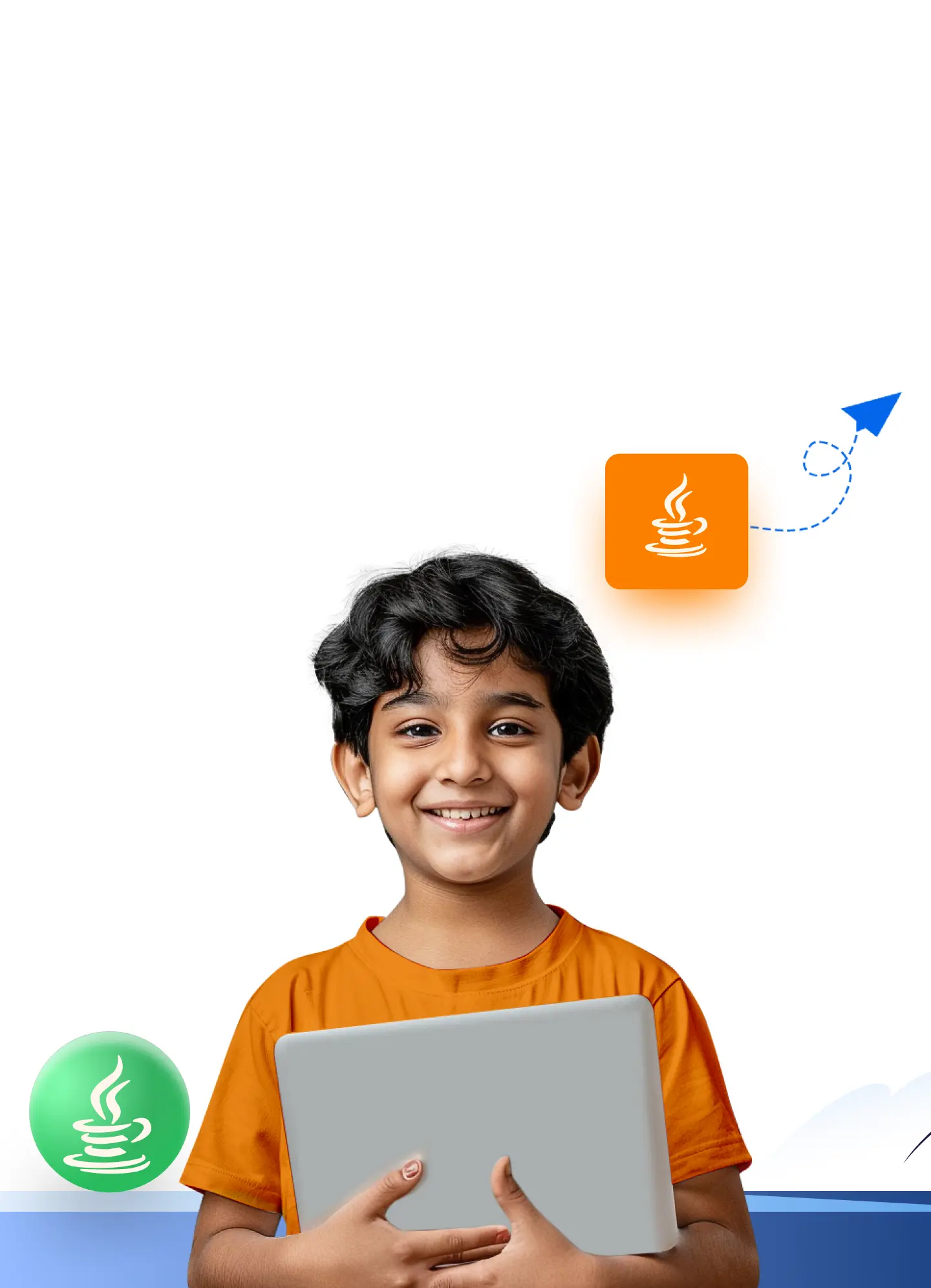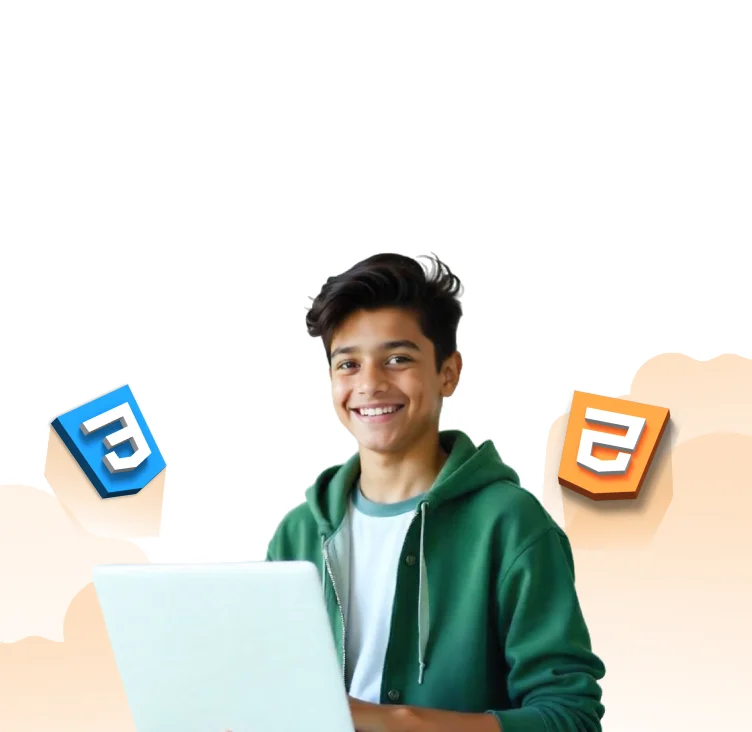10 Exciting Python Games for Kids to Code (and Where to Try Them!)
By Srinithi SankarLooking for a fun and educational way to get your child started with programming? Python is one of the best beginner-friendly languages, and what better way to learn it than by building games! In this blog, we’ll explore exciting and easy Python games for kids can code themselves. Whether your child is just getting started or already loves tech, these hands-on projects will help them think logically, develop problem-solving skills, and, most importantly, have fun while learning to code. Let’s explore the world of Python games for kids!
Why Python Just Clicks with Young Minds
When kids start learning something new, clarity is everything. Python’s clean, readable syntax feels more like simple English than complex code—perfect for young learners who are just stepping into the world of programming. It cuts the confusion and lets them focus on the real stuff: logic, structure, and creativity.
Beyond simplicity, Python is versatile—it powers everything from games and websites to AI and automation. That means kids aren’t just learning “toy code”; they’re building real-world skills from the get-go. Whether they’re animating a turtle or designing a quiz game, Python gives them visible, immediate results, which keeps them curious and coming back for more.
Let the Games Begin: Learn Python by Playing!
When it comes to learning, play isn’t just a break—it’s the gateway to understanding. Python games offer the perfect mix of fun and foundational coding. Below is a handpicked list of games that don’t just teach lines of code, but nurture a child’s logic, creativity, and confidence—one project at a time.
1. Coding Pirate
Step aboard a digital pirate ship where coding is the only way to unlock treasure! In this adventure game, kids embark on a quest to find hidden treasures by solving coding puzzles. They use Python to navigate through challenges, decode maps, and overcome obstacles. The game introduces fundamental programming concepts like loops, conditionals, and functions in an engaging storyline, making learning interactive and fun. It’s an excellent way to develop problem-solving skills and logical thinking.
- Platform: HackerKID – Coding Pirate
- Access: Freemium (basic levels free; full access via subscription)
- Ideal For: Kids aged 8–14
2. The Turtle
This game allows kids to control a turtle on the screen using Python commands to draw shapes and patterns. It’s a visual and interactive way to learn programming concepts such as loops, angles, and coordinates. As children experiment with different commands, they see immediate results, reinforcing their understanding and keeping them engaged. It’s perfect for introducing geometry and programming in a creative context.
- Platform: HackerKID – The Turtle
- Access: Freemium (basic access free; extended content via subscription)
- Ideal For: Kids aged 7+
Available on: HackerKID – The Turtle
3. Asteroids Game
In this classic arcade-style game, kids program a spaceship to navigate through space and destroy asteroids using Python’s Pygame library. They learn about event handling, collision detection, and game loops. The project enhances their understanding of object-oriented programming and real-time game dynamics. It’s a thrilling way to apply coding skills in a dynamic environment.
- Platform: Create & Learn – Python Games for Kids
- Access: Paid (course-based model)
- Ideal For: Intermediate coders aged 10+
4. Tic-Tac-Toe (GUI Edition)
Kids build a graphical version of the classic Tic-Tac-Toe game using Python’s Tkinter library. They design the game interface, handle user inputs, and implement game logic to determine the winner. This project teaches GUI development, event-driven programming, and reinforces logical thinking. It’s a great way to make coding tangible and interactive.
- Platform: Create & Learn – Python Games for Kids
- Access: Paid (course-based)
- Ideal For: Beginners aged 9+
5. Snake Game
In this project, kids recreate the classic Snake game, controlling a snake that grows longer as it eats food. They learn about game loops, collision detection, and managing increasing complexity. The game teaches them how to structure code efficiently and introduces them to the basics of game development using Python. It’s a fun way to practice problem-solving and logical thinking.
- Platform: AskPython – Easy Games in Python
- Access: Free
- Ideal For: Intermediate coders aged 10+
6. Rock, Paper Scissors
This game introduces kids to Python by having them code the classic Rock Paper Scissors game. They learn about conditionals, user input, and random number generation. It’s a simple yet effective way to understand basic programming concepts and control flow. The game can be expanded with score tracking and additional features as they advance.
- Platform: AskPython – Easy Games in Python
- Access: Free
- Ideal For: Beginners aged 8+
7. Mad Libs Generator
Kids create a Mad Libs-style story generator in this humorous game using Python. They prompt users for various words and insert them into a pre-written story template. This project teaches string manipulation, user input handling, and the use of variables. It’s a creative way to practice coding while having fun with language and storytelling.
- Platform: Compatible with HackerKID or local Python IDEs
- Access: Free (can be coded independently)
- Ideal For: Beginners aged 8–12
8. Hangman
Kids code the classic Hangman game, where players guess letters to reveal a hidden word. They learn about loops, conditionals, and string operations. The game reinforces logical thinking and introduces them to managing game state and user interaction. It’s an engaging way to apply programming skills in a familiar context.
- Platform: Standalone or on HackerKID IDE
- Access: Free
- Ideal For: Beginners to Intermediate (ages 9–13)
9. Guess the Number
In this simple game, the computer selects a random number, and the player tries to guess it. Kids learn about loops, conditionals, and random number generation. It’s an excellent introduction to programming logic and user input handling. The game can be enhanced with features like guess limits and feedback messages.
- Platform: AskPython – Easy Games in Python
- Access: Free
- Ideal For: Beginners aged 7–10
10. Color Match Challenge
This fast-paced game pushes kids to respond quickly—typing the color of the word on screen, not the word itself. While it sounds simple, the challenge activates both logic and focus. As they build this game using Python, kids explore GUI development with Tkinter, timers, and input handling. It’s great for improving decision-making and hand-eye coordination, all while learning real coding logic. Plus, it opens the door to creating more interactive apps in Python.
- Platform: Create & Learn – Python Games for Kids
- Access: Paid (via online classes or guided workshops)
- Ideal For: Ages 9–12, with basic Python experience
Tips to Help Your Child Get the Most Out of Python Games
- Let your child lead the way
Kids are naturally curious, so let that curiosity guide them. If your child is excited about building a snake game or animating a turtle, let them run with it! You don’t need to know the code yourself; just asking, “Hey, how’d you do that?” can go a long way in boosting their confidence. - Start with wins, not walls
Begin with small, achievable games like Guess the Number or Rock Paper Scissors. These early successes give kids that satisfying “I did it!” moment and motivate them to take on bigger challenges later, like building full-on arcade-style games. - Turn bugs into brain fuel
Let’s be honest—bugs will happen. But here’s the secret: debugging is where the real learning happens. Encourage your child to treat error messages as little riddles rather than roadblocks. And when they fix one? Total superhero moment. - Keep things light, fun, and game-first
Platforms like HackerKID are made to feel more like fun quests than schoolwork. Let your child explore these spaces freely. Whether they’re moving a pirate across a grid or drawing shapes with a turtle, they’re learning real coding fundamentals—without even realizing it. - Be their biggest cheerleader
You don’t have to code to be involved. Just checking in on their progress or celebrating their first working game can mean the world. And hey, ask them to “teach” you what they’ve made—it reinforces their learning and makes them feel like total pros. - Keep pace with their pace
Some kids binge-learn; others poke around one line of code at a time. And that’s okay. What matters most is that they’re exploring at their rhythm. Coding isn’t a race—it’s a skill that grows with play and practice.
Learning tech has never been this fun! Say goodbye to dull quizzes and hello to Buzzer, the ultimate computer science and technology MCQ game for kids! Pick your favorite topic, hit the buzzer, and tackle exciting gamified questions. Whether you’re playing for fun or competing, every round is an adventure. Think fast, answer smart, and climb the leaderboard. Play Buzzer now!
Turn Play into Potential
We often think of playtime and learning as opposites, but when kids start coding with Python games, that gap disappears. These games aren’t just fun distractions—they’re cleverly disguised lessons in logic, sequencing, and creative problem-solving. And the best part? Kids don’t even realize they’re learning; they’re too busy having fun.
With platforms like HackerKID leading the charge, kids can dive into a world where they build games, fix bugs, and bring ideas to life—all while picking up one of the most in-demand skills of the future. Whether it’s a turtle drawing circles or a pirate unlocking treasure with code, every game is a step toward digital confidence.
So go ahead— let your child explore, experiment, and play. With Python games for kids to code, the screen becomes a launchpad for curiosity, growth, and a whole lot of imagination.
Want to give your child a head start in coding? With HackerKid, they’ll follow a well-structured path built by experts, engage in fun, hands-on learning, and build real projects along the way. No confusion, no aimless browsing, just the right guidance at the right time.
Fill out the form for a personalized roadmap and start your child’s tech journey today!
Frequently Asked Questions:
1. What are the best Python games for kids to code?
Top Python games for kids include Turtle Graphics, Rock Paper Scissors, Guess the Number, and Mad Libs Generator. These projects teach fundamental coding concepts like loops, conditionals, and user input, making learning interactive and fun. Platforms like HackerKID offer structured environments for these activities.
2. At what age can children start coding with Python games?
Children as young as 7 can begin coding with Python games. Python’s simple syntax makes it accessible for beginners. Starting with visual projects like Turtle Graphics helps young learners grasp programming concepts effectively.
3. Are Python coding games suitable for beginners?
Yes, Python coding games are ideal for beginners. They offer a hands-on approach to learning programming basics. Games like “Guess the Number” and “Mad Libs Generator” introduce concepts like variables and loops engagingly.
4. How do Python games enhance children’s learning?
Python games enhance learning by combining play with education. They develop problem-solving skills, logical thinking, and creativity. By coding games, children see immediate results of their work, reinforcing learning and boosting confidence.
5. Where can I find Python coding games for kids?
Platforms like HackerKID offer a variety of Python coding games tailored for children. These platforms provide interactive lessons and projects that make learning to code enjoyable and effective.









